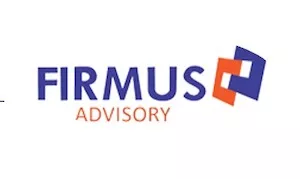- with Finance and Tax Executives
- in European Union
- in European Union
- in European Union
- in European Union
- in European Union
- in European Union
- in European Union
- in European Union
- with readers working within the Technology, Metals & Mining and Retail & Leisure industries
Have you been thinking of launching a business as a Payment Service Provider (PSP) in Ghana? Are you wondering what the requirements and processes will be; how quick and how easy? This article will give you the necessary information required to launch your PSP or FINTECH (financial technology) business in Ghana.
E-commerce is globally soaring and this trend is expected to continue. People can now order goods and services online and use same medium to make payments enabled by fintech. Thus, the world of business is changing gradually to adapt to the changes and development in technology. The emergence of COVID-19 especially has revealed the importance of e-commerce.
Therefore, the services of PSP companies enable companies and individuals to transact business across the globe with ease. Banks rely on PSPs to service their clients wherever they may be by using online payment apps and platforms, remittance or money transfer products, ATMs, visa cards, debit cards and master cards, etc. Also, telecommunication companies work with PSPs to integrate mobile payment solutions to enhance the speed of transactions.
Who Issues PSP licenses?
In Ghana, Payment Service Provider (abbreviated as PSP) licenses are regulated and issued by the Bank of Ghana (BOG) under the Payment Systems and Services Act 2019 (Act 987). One of the functions of BOG is to promote the safety and soundness of all payment, clearing and settlement systems. A company is not supposed to operate any payment service platform without a valid license from BOG. The enactment of the Payment Systems and Services Act, 2019 (Act 987) provides the legal and regulatory framework for the orderly development of the payment system.
What is a Payment Service Provider?
A PSP provides online services for accepting electronic payments through a variety of payment methods including credit card, bank-based payments such as direct debit, bank transfer, and real-time bank transfer based on online banking. It is typically operated via a software platform commonly.
The range of services includes dedicated electronic money issuers, payment service providers (PSPs), closed-loop payment products, payment support solutions, and other emerging forms of payment delivered by non-bank entities.
What are the types of Payment Service Provider license and Permissible Activities for a FINTECH?
There are five (5) main classifications of PSP or FINTECH licenses in Ghana. Each PSP license allows a company to carry out specified permissible activities. If a company carries on an activity that falls outside the permissible activities, it would be in default and will be liable to a fine by the BOG. However, when a company holds a higher category of license like an Electronic Money Issuer, the company may undertake activities of the other lower category of licenses but not vice-versa.
The table below shows the categories of licensing and the permissible activities.
| S/N | TYPE OF LICENCE | PERMISSIBLE ACTIVITIES
|
| 1 | DEDICATED ELECTRONIC AND ELECTRONIC MONEY ISSUERS | . Recruitment and management of agents
. Creation and management of wallet . P2P On Net/ Off Net . Cash-in and cash-out . Wallet based domestic money transfers including transfers to and from bank accounts . Investment, savings, credit, insurance and pension products (ONLY in partnership with banks and duly regulated institutions) . Mobile money merchant acquiring . Termination of inbound International Money Transfer
|
| 2 | PAYMENT SERVICE PROVIDER - SCHEME | . Domestic Card Brand Associations e.g. Gh-Link
. Switching & routing of payment transactions and instructions
|
| 3 | PAYMENT SERVICE - ENHANCED | All permissible activities for PSP - medium license
. Marketplace for financial services offered by duly regulated financial service providers . Merchant acquiring and merchant aggregation . Payment processing . Printing and personalization of EMV Cards . Inward international remittances services . Provide 3rd party payment gateway services . Limited use closed loop virtual cards (funded via refunds, rewards & user's other accounts)
|
| 4 | PAYMENT SERVICE PROVIDER - MEDIUM | Connects to an Enhanced PSP to offer the following
services:
. All permissible activities for PSP- Standard license . Payment aggregation which is connected to Enhanced PSP . Biller/Merchant Aggregation . POS deployment . Printing of non-cash payment instruments e.g. cheques . Mobile payment Apps (with liability shift)
|
| 5 | PAYMENT SERVICE PROVIDER - STANDARD | Connects to an Enhanced PSP to offer the following
services: . Mobile payment Apps (Liability shift on PSP enhanced)
|
What are the applicable Payment Service Provider license fees?
The fee schedule below details the processing, license and renewal fees.
| S/N | LICENCE TYPE | INTEGRITY
CAPITAL (GHS) |
PROCESSING
(GHS) |
LICENSE FEE
(GHS) |
RENEWAL
(GHS) |
TENURE |
| 1 | DEDICATED ELECTRONIC MONEY ISSUER
|
20,000,000
|
25,000 | 100,000 | 10,000 | 5 YEARS |
| 2 | PSP (SCHEME)
|
8,000,000 | 20,000 | 90,000 | 8,000 | 5 YEARS |
| 3 | PSP (ENHANCED)
|
2,000,000 | 12,000 | 40,000 | 7,000 | 5 YEARS |
| 4 | PSP (MEDIUM)
|
800,000 | 8,000 | 15,000 | 5,000 | 5 YEARS |
| 5 | PSP (STANDARD) | NO CAPITAL REQUIRED | 500 | 1,000 | 200 | 5 YEARS |
What are the key requirements for obtaining a Payment Service Provider License for a FINTECH?
1. Integrity Capital / Minimum Capital Requirements
There are specific minimum capital requirements or integrity capital for each of the classes of the PSP licenses. Similarly, the GIPC Act 865 equally has minimum capital requirement for businesses with foreign ownership participation. If the entity applying for the PSP license also has foreign ownership, then the company will be required to comply with whichever is highest.
This implies that, sticking to only the minimum capital requirement from Ghana Investment Promotion Centre (GIPC) (for company registered with foreign participation) may not suffice for some of the categories of licenses. It is very important to consider the applicable BOG capital requirements even before the business registration, either than that, you may be required to amend the capital (increase in capital duly filed with the Registrar of companies) before proceeding with the application.
It is as detailed below;
| S/N | LICENCE TYPE | INTEGRITY
CAPITAL (GHS) |
| 1 | DEDICATED ELECTRONIC MONEY ISSUER
|
20,000,000
|
| 2 | PSP (SCHEME)
|
8,000,000 |
| 3 | PSP (ENHANCED)
|
2,000,000 |
| 4 | PSP (MEDIUM)
|
800,000 |
| 5 | PSP (STANDARD) | NO CAPITAL REQUIRED |
Please take note that the Integrity Capital listed above is required to be deposited with BOG from the time of operation till the company ceases operation, winds up, etc. The Company cannot touch this money as long as it is still in operation. The funds however plus any accrued interest shall be released to the client upon winding up less any liabilities if any.
Also note that during the business registration, the Stated Capital is supposed to be higher than the Integrity Capital so that the balance could be used for the day-to-day running of the company. This extra capital to be used for working capital, is to be decided by the company.
See Also: how to register a Limited Liability Company with Registrar General's Department
2. Share structure
To obtain any PSP license, the company is required to have a Joint Venture with a Ghanaian partner. This Ghanaian is supposed to hold at least 30% of the total shares of the company. Therefore, this means that a wholly foreign-owned company cannot apply for a PSP license in Ghana. If for any reason, the company was originally registered as a wholly foreign owned, then to proceed with Bank of Ghana for a PSP license, they need to restructure the shareholding holding structure. Similarly, if the company is already a joint venture but the percentage of shares held by the Ghanaian is not up to 30%, then there is the need to restructure the share to correspond with the PSP requirement.
To view the article in full click here
The content of this article is intended to provide a general guide to the subject matter. Specialist advice should be sought about your specific circumstances.



